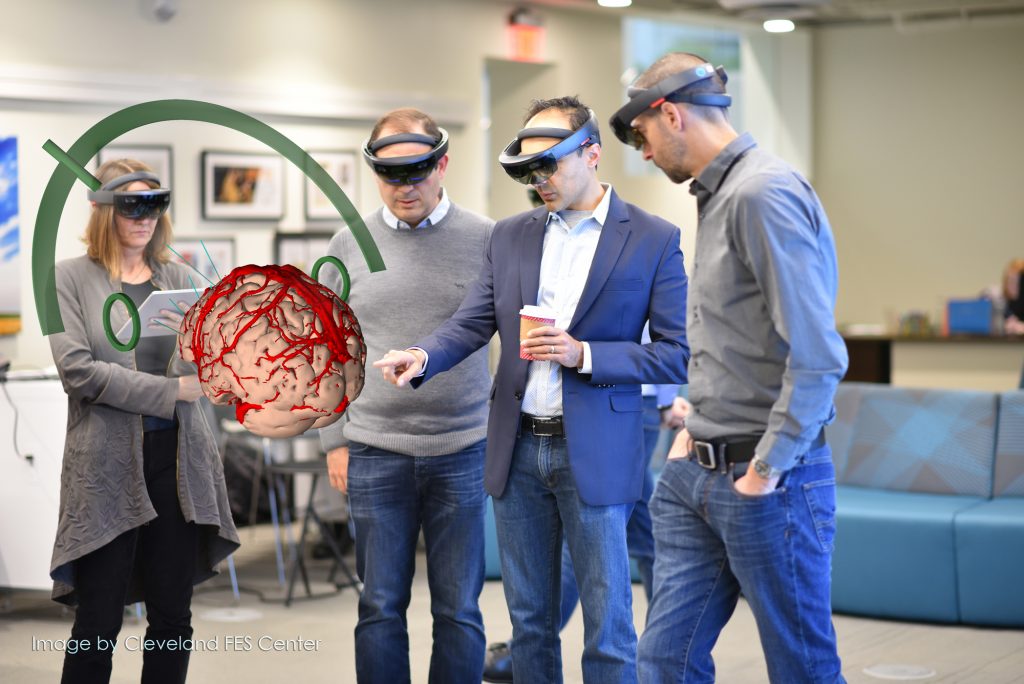Augmented Reality Platform for Deep Brain Stimulation
The goal of this project is to create holographic visualization tools and surgical targeting models for clinical Deep Brain Stimulation (DBS) that better document the anatomical target(s). These tools will be especially useful for DBS surgical education and research investigation.

About This Study
Deep Brain Stimulation (DBS) for the treatment of Parkinson’s disease (PD) can be highly effective at improving motor symptoms and enhancing the patient’s quality of life. However, the specific details of the anatomical target(s) for therapeutic stimulation remain unresolved. Therefore, a significant need exists for an anatomically driven model of subthalamic axonal pathways that can be interactively visualized with holographic 3D imaging and coupled to patient-specific DBS simulations.
Study Information
The first step of this study will rely on direct input from a collection of world experts in basal ganglia neuroanatomy to help build a virtual 3D atlas model of 8 different axonal pathways in the subthalamic region. This development will occur within the HoloLens augmented reality (AR) environment, thereby enabling face-to-face discussion among the anatomy experts while visualizing the model hologram and its interactive adjustment.
The second step of this study will evaluate the ability of various tractography algorithms to recreate the pathways described by the anatomy experts. It is hypothesized that tractography will fail to accurately capture the anatomical trajectory of most subthalamic axonal pathways without extensive modeling constraints. Results from this analysis will have important implications for the rapid growth of tractography in DBS research, as well as clinical practice.
Last step is the translation of the subthalamic axonal pathway model system into an interactive HoloLens AR application that works in concert with patient-specific MRI datasets and DBS pathway-activation modeling.
Principal Investigator: Cameron McIntyre, PhD
Contact Email: ccm4@case.edu
